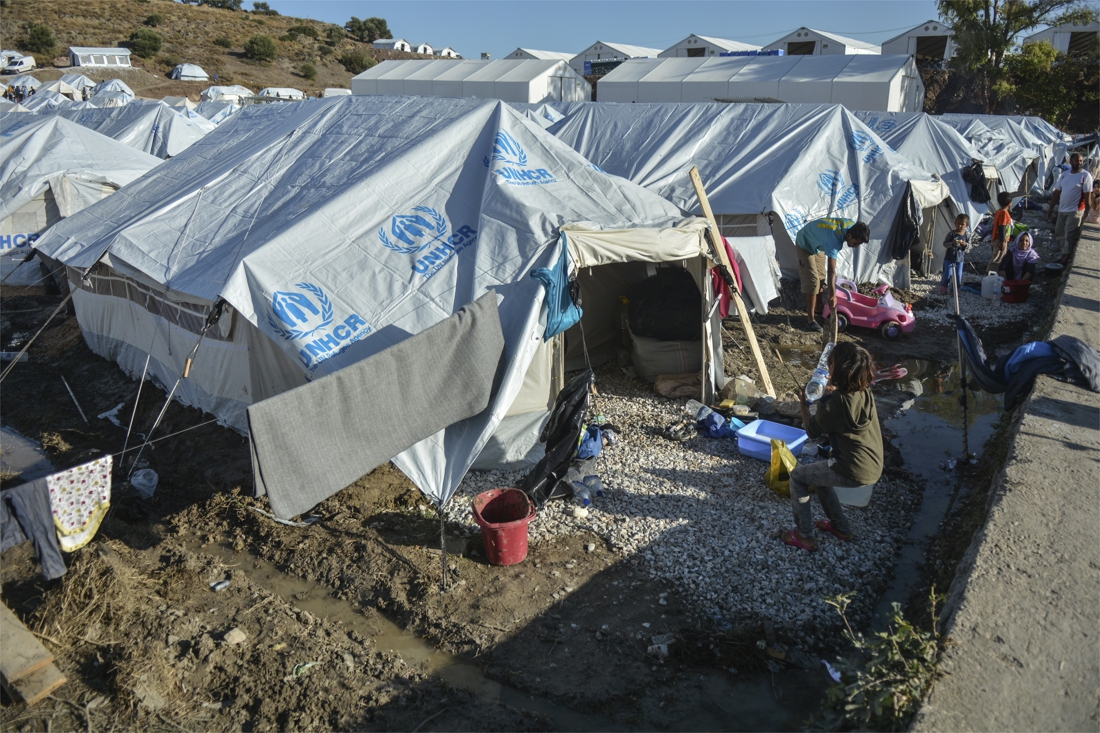1. Can you get the flu and corona at the same time?
Yes, there is a small chance of such a double infection, according to research in England, where the influenza wave was still active at the beginning of this year when corona reached the country (in the Netherlands the flu had already disappeared by then). To be precise, 58 of the 19,256 participants in the study tested positive for influenza and corona at the same time. Of those 58 people, 25 eventually died, that is 43 percent. Of the more than 4,400 participants who only had corona among their members, nearly 27 percent died.
“So double infections seem serious, at least in the elderly,” says professor of molecular virology Ron Fouchier of Erasmus MC in Rotterdam. “That is also the reason that we are urging all risk groups this year to get the flu shot.”
Incidentally, the English study showed that people who had already had the flu in the winter were 58 percent less likely to also get corona. According to Fouchier, this could be due to ‘interference’. When a body comes into contact with a virus, it not only builds up specific antibodies against that one virus, but also many proteins that temporarily work against all viruses.
In a winter when corona is likely to cause a great deal of trouble for society, many flu patients would be an additional problem. A flu shot can prevent unnecessary hospital admissions, Fouchier says, as can home quarantines of people who fear corona but actually have the flu.
2. About that flu shot. Is it true that it is harder to get this year?
“Unfortunately, yes,” says Ted van Essen, general practitioner and chairman of the Dutch Influenza Foundation (NIS). “The messages I get are that the demand from GPs is 10 to 20 percent higher than normal. This year, the RIVM allowed GPs to purchase 14 percent more vaccine than in other years, so some practices are already falling short. ”
RIVM (National Institute for Public Health and the Environment) purchased half a million extra flu shots this year to meet the expected higher demand. More was not possible, according to the Ministry of Health, as influenza vaccines are in high demand around the world. GPs who have purchased cautiously may be able to reorder at a later stage. “That is not yet possible,” says Rob Riesmeijer of the RIVM. “We first want to get a good picture of the shortages and then look at how we can distribute the remaining vaccine fairly.”
In the Netherlands, people over 60 and people with underlying conditions receive an invitation for a free flu shot. On average, the older a person is, the more likely it is that catching the flu can have serious consequences. NIS chairman Van Essen can imagine that the remaining vaccine will soon be distributed mainly among the oldest Dutch people. “Surely that will be judged sensibly.”
View in the map below the proportion of people over 60 per municipality who received an injection in the 2018/2019 flu season.
3. Is the flu shot for (care) personnel also at risk?
Yes, there too shortages are imminent, or they are already there. Unlike the elderly and the vulnerable, the purchase of these vaccines is not done by the RIVM but by the employer, from pharmaceutical wholesalers. “I have already been called by various organizations to ask if I still know how they can get extra flu shots,” says Van Essen. “But the message is: that will be difficult.”
Rob Riesmeijer of the RIVM also expects that the shelves at the wholesalers will be anything but full. “There has been so much demand from all sides that I do not expect there is much more to be had.”
Hospitals and other healthcare institutions in particular want as many staff as possible to take the flu shot. “We like to keep the medical staff to their bedside, especially during corona time, so we hope that they also get vaccinated against the flu,” says Ron Fouchier. Now we still hope that there are sufficient vaccines, so.
4. What can actually be expected from the upcoming flu season?
In recent winters, flu patients regularly filled the wards and caused a significant number of deaths. In 2017/2018, for example, the flu hit violently with an excess mortality of almost 10,000. Last winter, the flu epidemic was very limited, with only 404 extra deaths from influenza. More than six years ago, in 2013/2014. no excess mortality from influenza was even measured. “You never know with the flu,” explains Ted van Essen.
Still, there is hope that the upcoming flu season will also be mild. A number of arguments can be made for this. Firstly, due to the increased demand for flu vaccines, fewer people will be susceptible to the virus than in previous years. Second, during our summer in the southern hemisphere – it was winter there – the flu has been a lot less active than usual. The wave that will soon return to the northern hemisphere is therefore much smaller.
This may have to do with the interference mentioned in question 1: if one virus (corona) is very active, the other virus (flu) sings a tone lower. But another factor is that people all over the world are now much more aware of their hygiene and keep their distance from each other more often. This not only inhibits the spread of corona, but also of other respiratory viruses such as influenza.
But, as said, you never know with the flu. Moreover, it could be that a number of mild flu seasons in a row could lead to a very intense season, for example in the winter of 2021/2022.
–

